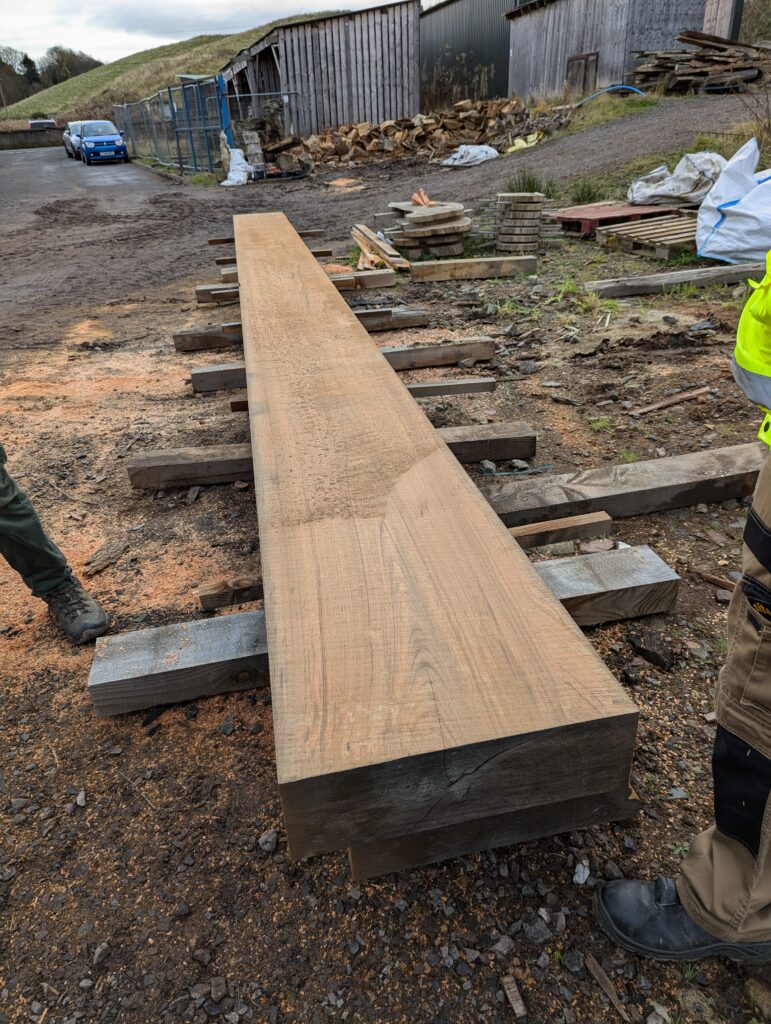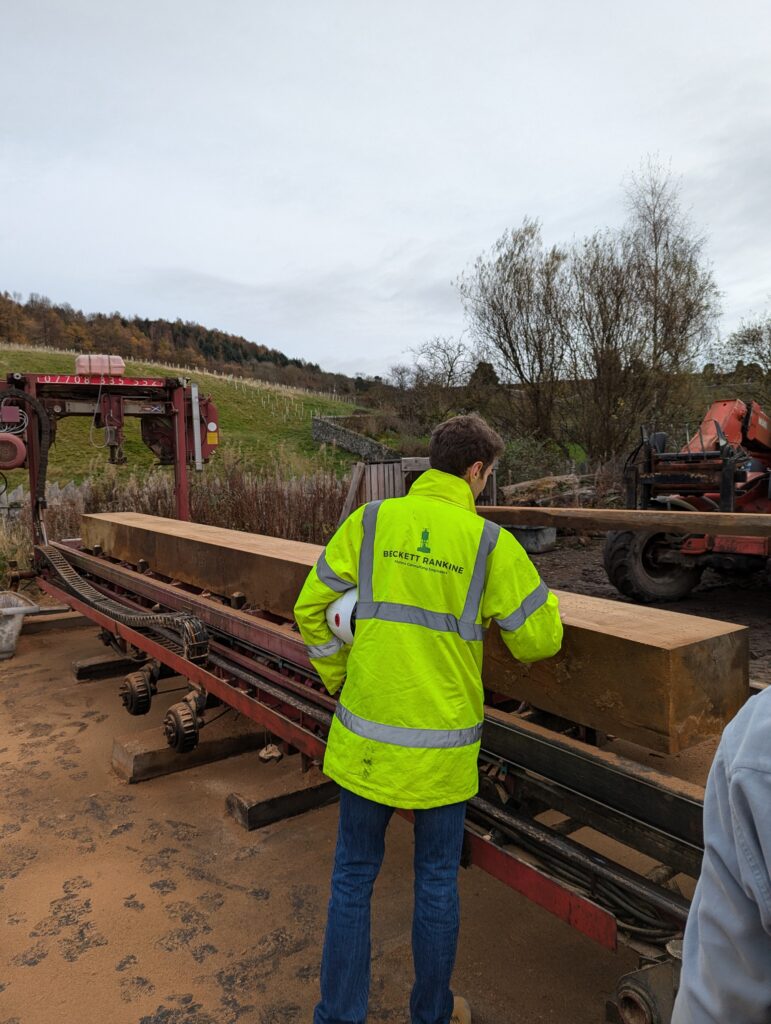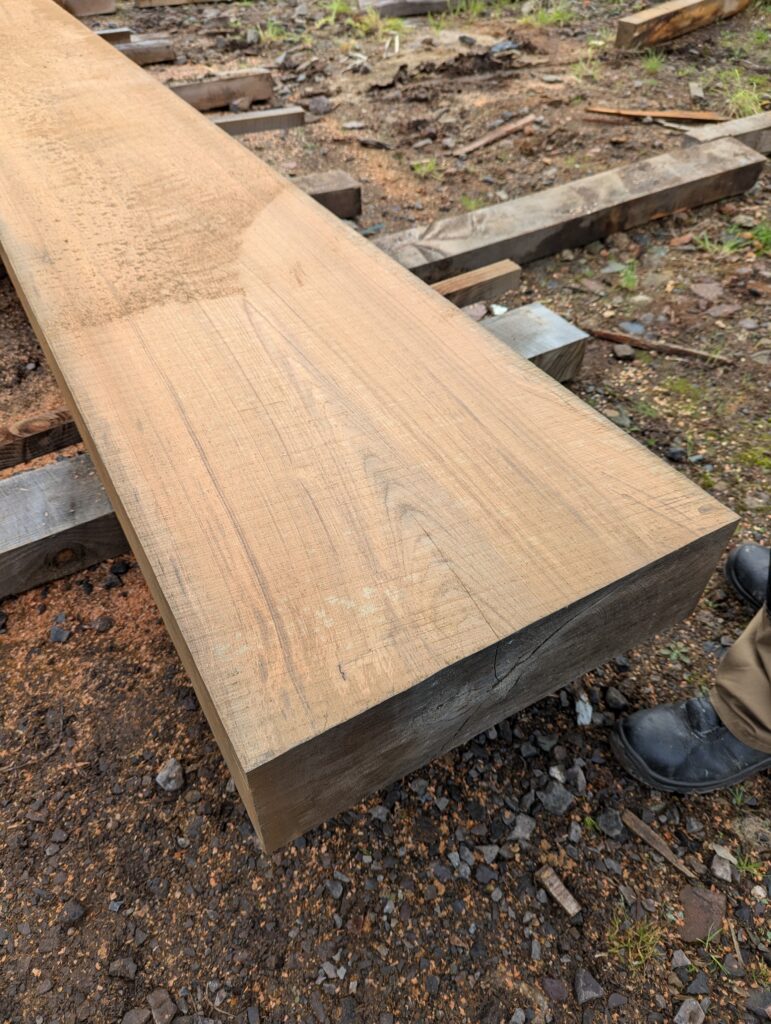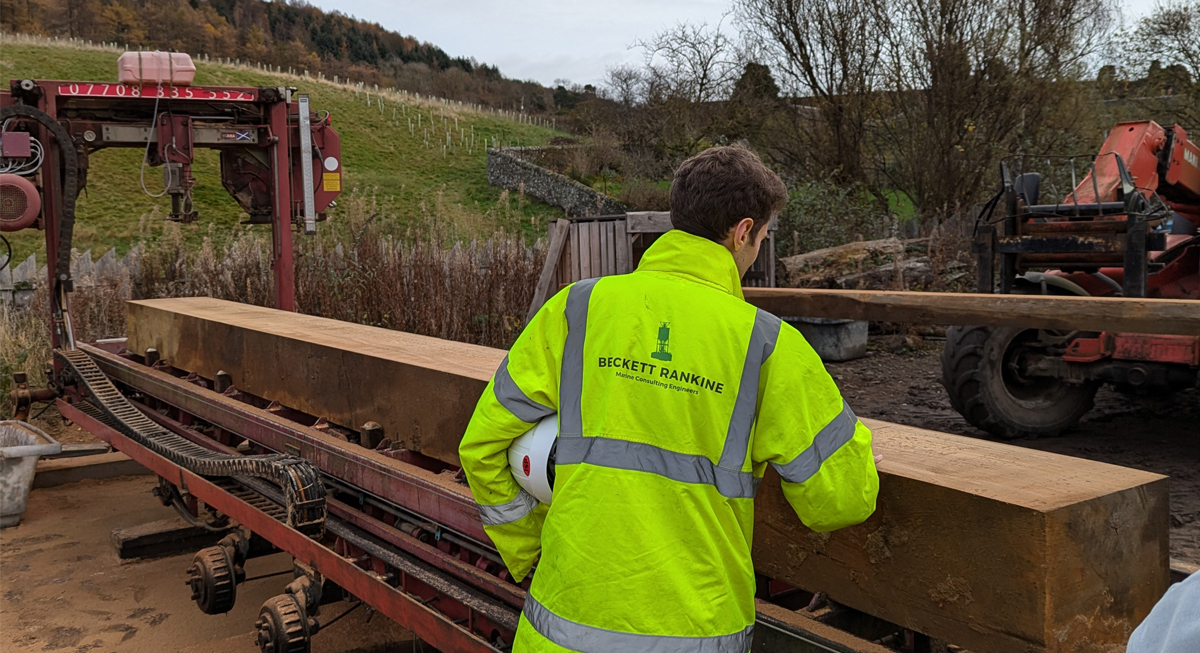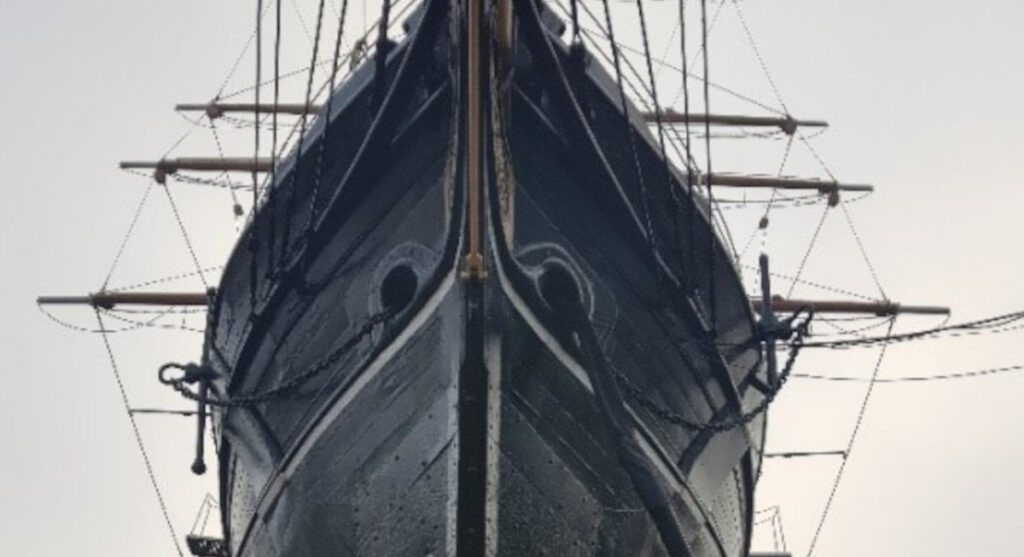After a century underwater, Burmese teak salvaged from a sunken steamer ship is to be recycled for the RRS Discovery.
Discovery’s restoration includes repairing or replacing timber in various parts of the vessel, following sustainability and conservation guidelines for effective results that honour the ship’s original design.
Beckett Rankine, overseeing Discovery’s restoration on behalf of Dundee Heritage Trust, identified an unusual source of timber that would entwine two historic vessels from here on.
A 1913 British steamer ship, SS Pegu, was sunk in 1917 by the German Submarine U-57 on a voyage from Rangoon (now Yangon) to Liverpool. Her cargo included Burmese teak destined to fortify gun emplacements in WW1 France and Belgium.
The timber was salvaged in 2011 and has been drying out ever since. Now, it is being prepared by Scottish Sawmilling Services for contractors JPS Restoration to install.
John Monasta, Principal Naval Architect and project manager, said, “While we pride ourselves at Beckett Rankine for our sustainability-oriented approach to projects, this opportunity is also an incredible story that adds to RRS Discovery’s rich tapestry. In restoring historic vessels such as RRS Discovery, we can add new layers to the narrative and the interpretation and in this instance, we could intertwine the story of SS Pegu.
“Sustainably sourcing teak of this quality and size is also impossible nowadays, so the availability of this premium material has proven to be invaluable to the craftsmen working on the ship. The results are a lower carbon footprint for the project while sympathetically conserving the ship, to a higher standard than would have been assumed to date.
“We are also delighted to support local craftsmanship skills in Scotland by working with Scottish Sawmilling Services and JPS Restoration. This project is enabling knowledge transfer that we hope will benefit ships old and new for generations to come.”
